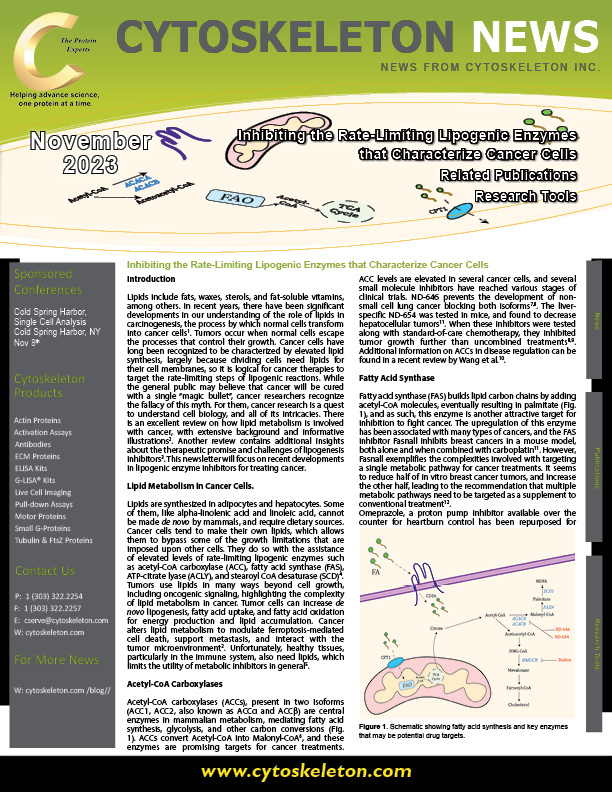Inhibiting The Rate-Limiting Lipogenic Enzymes That Characterize Cancer Cells
- By Cytoskeleton Inc. - Live Cell News
- Nov 7, 2023

Introduction
Lipids include fats, waxes, sterols, and fat-soluble vitamins, among others. In recent years, there have been significant developments in our understanding of the role of lipids in carcinogenesis, the process by which normal cells transform into cancer cells1. Tumors occur when normal cells escape the processes that control their growth. Cancer cells have long been recognized to be characterized by elevated lipid synthesis, largely because dividing cells need lipids for their cell membranes, so it is logical to develop cancer therapies to target the rate-limiting steps of lipogenic reactions. There is an excellent review on how lipid metabolism is involved with cancer, with extensive background and informative illustrations2. Another review contains additional insights about the therapeutic promise and challenges of lipogenesis inhibitors3. This newsletter will focus on recent developments in lipogenic enzyme inhibitors for treating cancer.
Also included in this newsletter:
- Actin and Microtubule Tools
- Related Publications

